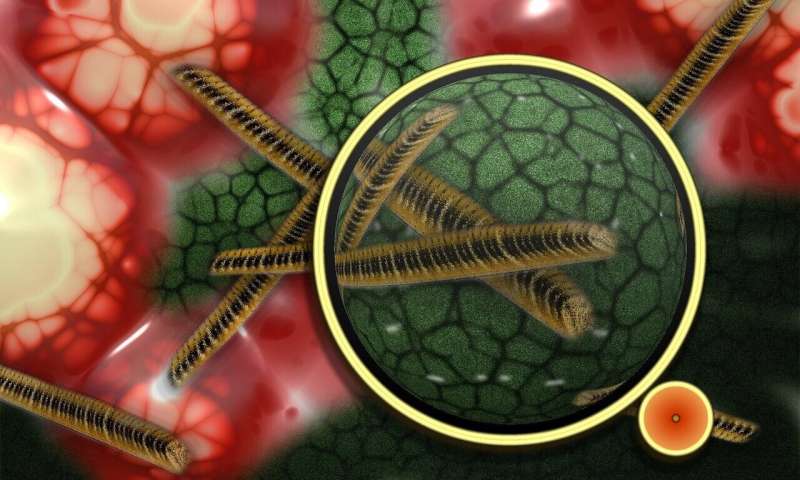Researchers probe microbiome-cancer treatment link

Cancer immunotherapies have given patients with particularly intractable cancers new hope, but not everyone benefits. One such immunotherapy, known as CAR T-cell therapy, works only in about a third of the people who take it—and the reason may lie in the microbes residing in our guts.
Over the next year, a team of Stanford and University of North Carolina researchers will try to suss out how millions of tiny microbes living inside us might make the difference between a cancer treatment's success and its failure.
"There's a lot of preclinical and circumstantial evidence to suggest that the gut microbiota play a role," said Ami Bhatt, an assistant professor of medicine and of genetics. Now, she said, "we're going to try to find a factor, and that factor may be a molecule or it may be a piece of DNA, that's associated with improved responses to therapy."
A new way to treat cancer—and a roadblock
For ages, the best ways to treat cancer were surgery, radiation and chemotherapy, but in the last decade doctors have been working to harness patients' own immune systems to fight cancer. One result is called chimeric antigen receptor T-cell therapy—CAR T for short—in which doctors remove T cells, which are central to the body's immune response to disease, and modify them so they're better prepared to attack cancer cells. CAR T has now been used to treat previously intractable cancers, including certain lymphomas that are the focus of the new study. Yet the treatment only works 30 to 40 percent of the time, said Andrew Rezvani, an assistant professor of medicine who is collaborating on the project. The rest of the time, CAR T's effectiveness fades away over time or fails altogether.
No one is exactly sure why that happens, but over the last decade or so there have been tantalizing clues that the microbiome plays a role. For example, researchers recently discovered that tumors grow at different rates in laboratory mice purchased from different suppliers, but only when the mice are housed separately. Housed together, the differences go away, suggesting a transmissible factor affects cancer progression. Add to that the fact that mice eat each other's feces and it starts to look a lot like something in their guts has an impact on cancer, Bhatt said.
Diving into human microbiome
To see whether the effect that's been deduced in mice may also affect cancer progression in people, Bhatt, Rezvani and Tessa Andermann, an assistant professor of medicine at the University of North Carolina, are piggybacking onto two upcoming CAR T clinical trials at Stanford run by David Miklos, an associate professor of medicine, and Crystal Mackall, a professor of pediatrics and of medicine. With help from a Stanford ChEM-H seed grant, they'll analyze blood samples and gather and analyze stool samples from about 100 people with a particularly hard-to-treat blood cancer, diffuse large cell B-cell lymphoma.
Miklos and Mackall's trials "presented a unique opportunity for us to combine stool and blood samples in order to more precisely determine host-microbiome interactions and their effect on CAR T outcomes," Andermann said.
Because no one is exactly sure how human microbiota might affect CAR T's effectiveness, the researchers are planning to cast a wide net. They'll look at potential associations with T cells themselves, and with help from ChEM-H's Metabolic Chemistry Analysis Center, they'll study whether chemicals produced in or processed by gut microorganisms might shape CAR T's effectiveness.
The end goal is not just to determine whether or how the microbiome affects CAR T, Rezvani said, but also to determine who might best benefit from immunotherapy and who could be spared the side effects, which include persistent, sometimes severe flu-like symptoms.
"The global question is how can we make CAR T more effective, but as a clinician, we see these patients and some of them will have a great response and some of them won't have any response" to treatment, Rezvani said. "Anything that lets us increase the chance that people are going to respond or at least tell people 'you are likely to benefit' or 'this isn't a good therapy for you' would be helpful."


















